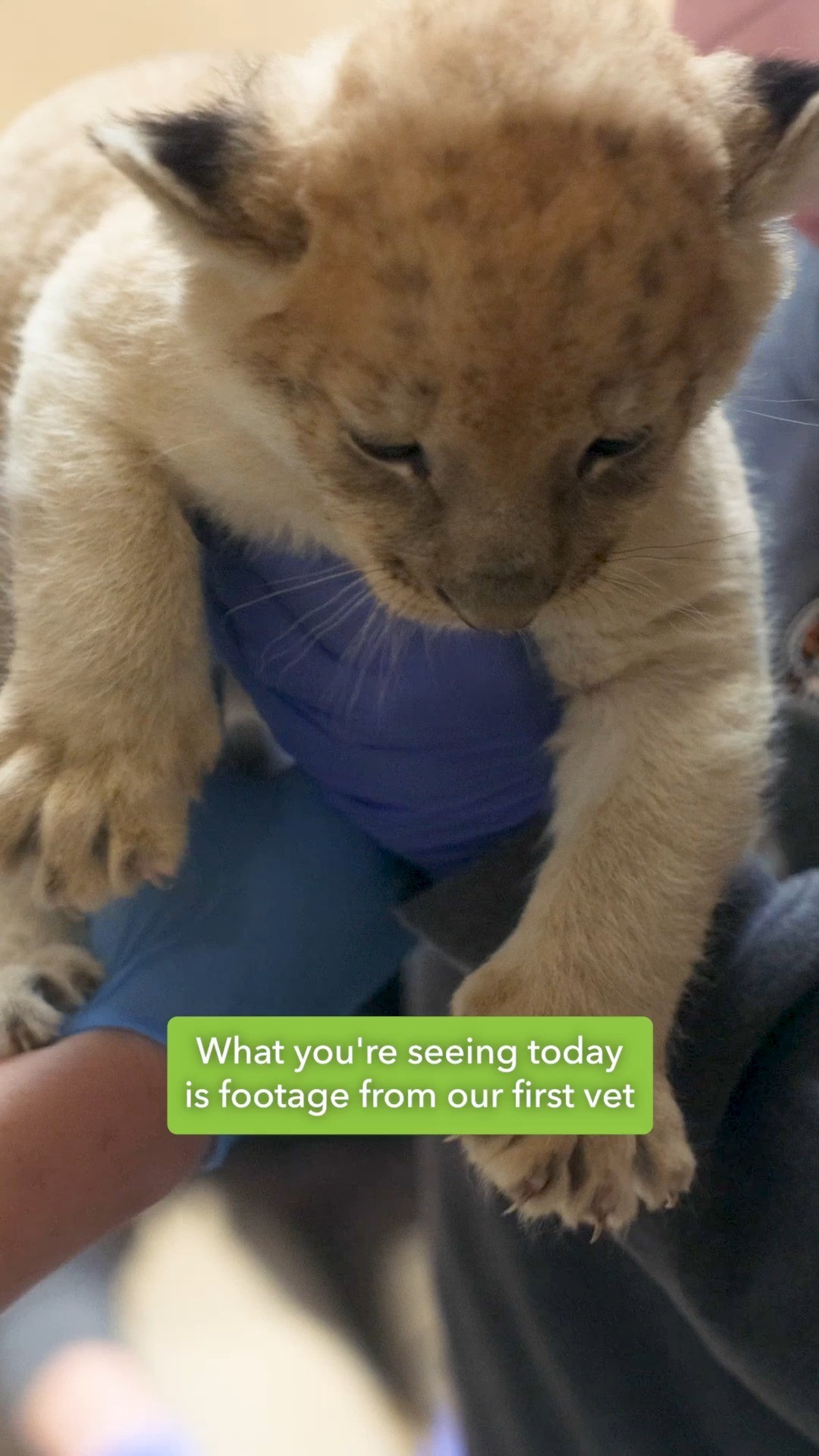- Introduction to the lion cubs’ first veterinary care visit and its significance for their health and development.
- Detailed description of the veterinary procedures performed during the visit and their importance for the well-being of the cubs.
- Insights into the role of zoo veterinary teams in maintaining animal health and supporting conservation efforts.
- Discussion on the challenges and practices involved in caring for lion cubs in captivity.
- Importance of wildlife conservation, the role of zoos, and how regular veterinary checks contribute to these efforts.
Lion cubs, the charismatic ambassadors of the Savanna, recently received their first thorough veterinary check-up. Such visits are crucial for monitoring the health and growth of these young animals during a vital stage in their lives. The initial veterinary visit lays the foundation for the cubs’ future well-being, offering insights that can steer their care throughout their development. This article explores the intricacies of such a visit, the essential procedures involved, and the broader implications for conservation and animal care in zoological settings.
Veterinary care for young lions involves a series of routine evaluations designed to establish a comprehensive health profile. During their first examination, cubs undergo a full physical check, which includes assessing their body condition, skin health, and limb movement. These assessments help detect early signs of potential health issues and ensure that the cubs are developing normally. Measurements like weight and size are recorded, as they provide baseline data for future health monitoring.
Blood tests are another critical aspect of this visit. These tests screen for genetic markers and diseases, offering important insights into the cubs’ immune system functionality. Analyzing the blood work ensures that the lions are free from infections that could affect their quality of life. This is paramount for the controlled environments of zoos where disease can spread quickly among animals. It allows the veterinary team to take preventive measures to protect the welfare of the cubs and the broader zoo population.
The role of the zoo’s veterinary care team extends beyond these initial checks. They are responsible for devising tailored health plans that suit the individual needs of each cub. These plans often include vaccination schedules, dietary requirements, and exercise routines. Vaccinations protect the cubs from harmful pathogens, while balanced diets ensure optimal growth and energy levels. Exercise plans are tailored to mimic natural behaviors, promoting physical and mental enrichment.
Veterinary teams play a crucial role not only in immediate care but also in long-term conservation efforts. By collecting data through various health checks, they contribute to research that informs best practices in wildlife management. The information gleaned from these visits aids in understanding how to improve the health outcomes of both captive and wild lion populations. It is this scientific insight that drives forward the commitment to preserving these majestic animals for future generations.
Caring for lion cubs in captivity presents a set of unique challenges. Providing an environment that mimics their natural habitat as closely as possible requires a profound understanding of both environmental and behavioral needs. Habitat design must accommodate their need for physical activity, social interaction, and mental stimulation. Care protocols must strike a balance, ensuring the lions’ health without eliminating their natural instincts and behaviors.
The skilled efforts of the veterinary and zoo keeping teams ensure that lion cubs receive care that fosters their development while serving conservation goals. These teams work diligently to build an environment that upholds the highest standards of animal welfare. Their work directly contributes to the success of breeding programs that aim to bolster wild populations whose numbers have been tragically dwindling.
Wildlife conservation remains a priority in today’s world, with zoos acting as preservation frontlines. Regular veterinary check-ups represent a section of the larger tapestry of conservation measures. Each health assessment and data point aids the global effort to maintain genetic diversity and ensure the survival of endangered species. Through committed and informed care practices, zoo facilities foster an understanding and appreciation for wildlife conservation.
The involvement of veterinary care teams in the lives of lion cubs underscores the importance of scientific management in animal care and conservation. From fostering health and well-being to contributing to global preservation efforts, these first visits mark a significant start in the life of a lion cub. Zoos play an active role in these lordly creatures’ journey, ensuring they remain ambassadors of biodiversity and conservation success.
*****
Source Description
Our lion cubs had their first visit from our Veterinary care team. Check it out!

